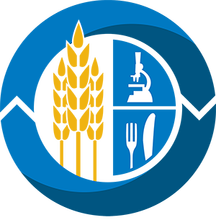Collaborative approach
What We Do
Developing solutions to complex problems requires a broader range of expertise and experience than any one individual or organization can typically have. To address such challenges, the Food Protection and Defense Institute establishes and grows partnerships and collaborations among subject matter experts and stakeholders from across academia, industry, government, and the nongovernmental sector.
How We Work
The Food Protection and Defense Institute works with sponsors, stakeholders, and customers to define the dimensions of the problem and the methods to research. This User-centered design approach provides the stakeholder and user perspective to articulate goals and user requirements as well as inform research tasks and outcomes. With that, we reach deep into our extensive network to ensure the required skills, knowledge, and perspectives are present at each stage of the project. This approach maximizes the opportunity for solutions that endure, meet the sponsor’s needs, and generate good return on investment.
Our Capabilities
The Institute's ability and experience embrace a wide range of food protection, emergency preparedness, homeland security, public health, and critical infrastructure resiliency. Our team members have been trained in this user-centric collaborative approach and have demonstrated repeated successes in our research.
Research examples requiring a collaborative approach
Food defense detection technologies workshop series
For the Food Defense Detection Technologies Workshop Series, the Institute assembled experts from across the sector including leading food scientists, toxicologists, and public health experts from some of the nation’s largest food companies and testing equipment manufacturers; US and Canadian universities; Federally Funded Research and Development Centers (FFRDCs) and University Affiliated Research Centers (UARCs); federal and state government agencies; and nongovernmental standards setting organizations. The Workshop Series resulted in recommendations to the Department of Homeland Security for specific agent detection research and development efforts to safeguard the nation against chemical and biological attack. In addition, the Workshop Series produced an agent detection research database and method assessment tool.
Strengthening food industry cybersecurity capacity
The Food Protection and Defense Institute was the first organization to highlight the Food and Agriculture Sector’s cybersecurity vulnerabilities, particularly to attacks on the industrial control systems (ICSs) that almost all food companies rely on to operate food production facilities. For this effort, the Institute was able to convene leading experts in cybersecurity and food production to assess the risk and begin initiatives to address them. This work has significantly increased awareness in the food industry of the need for ICS cybersecurity, and the Institute has piloted a promising assessment for assisting food companies, especially small- and medium-sized businesses, in strengthening their cybersecurity.
Public health emergency simulation exercise
The Food Protection and Defense Institute led the design and facilitation of an international pandemic influenza exercise. The Institute served as a neutral convener to bring together United Nations agencies, NGOs, private sector companies, and country governments to test disaster medical supply chains and simulate information sharing across organizations. The four-day exercise occurred real-time with participants playing during their local office hours as realistic information injects and scenario updates were released each day. Participants were asked to respond by providing information or simulating an action as they would during a true pandemic. Resource estimation, rapid global inventory assessment, supply chain analysis and visualization, and supply movement were tested for the exercise.
Expertise
We have in-house—or can access through our network—domain expertise in areas such as agent behavior and detection, biosurveillance, food manufacturing and processing, industrial control system cybersecurity, supply chain security, and veterinary medicine—to name a few. And, to these we apply skills in technology application development; policy analysis; predictive analytics; preparedness and response planning; risk analysis and assessment; tabletop exercise development, facilitation, and delivery; and a broad range of laboratory-based methods and approaches.
Food Protection and Defense Institute
University of Minnesota
1365 Gortner Ave.
St. Paul, MN 55108
[email protected]
612-624-2458
